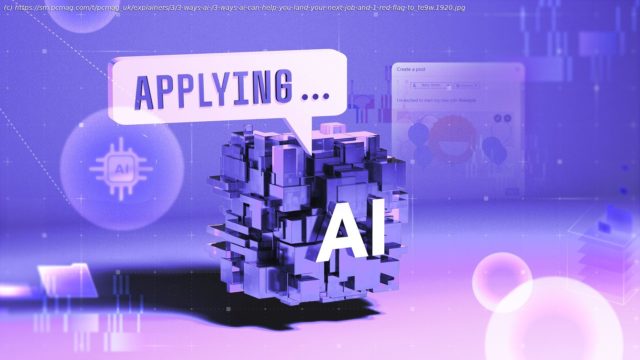AI can help you get your dream job, but it can also ruin your chances. Here’s how to use AI in your job search the right way.
Job hunting sucks. You can spend hours searching for positions to apply to, filling out forms, and writing cover letters to never even get a rejection email, let alone constructive criticism. So, in a world where employers are increasingly relying on AI, why shouldn’t you use it to make this process less painful or even give you an edge over the competition? AI can be a valuable tool in your job search, but it’s essential to use it effectively. Otherwise, you risk your applications never getting a second look. To maximize your chances of finding the perfect gig with AI, follow our three tips below and take note of some practices to actively avoid.1. Boost Those Keywords and Tailor Your Resume
Aside from checking your resume for grammar and spelling issues, AI chatbots can check for passive voice, phrasing, and word choice. These might seem like minor tweaks, but using the best language possible to demonstrate your experience can make a meaningful difference. Furthermore, it’s not always easy to do that by yourself after staring at the same page for hours.
Many companies use software to keep track of applicants. Often, these programs look for certain keywords to trim a pool of candidates down from hundreds or even thousands to a number a hiring manager can reasonably interview. AI chatbots can pick out potential keywords from a job description or a list of the top keywords in your industry, as well as give you suggestions on how to incorporate them naturally into your resume without resorting to keyword stuffing.
You should take advantage of deep research capabilities, too. ChatGPT and Gemini, for example, can generate reports spanning dozens of pages and incorporating upward of 50 sources on any topic for free. As such, you can task a chatbot with digging into what’s going on in your industry and coming up with ways to optimize your resume. For example, if there is a high demand for coders with experience in a language you know, you can emphasize that in your resume.
Lastly, tailoring a resume to the job you’re applying for, especially if it’s a dream job, can be worthwhile. But it’s also a major pain. A chatbot can help you with this. You can feed it a job description and your resume, and then ask it to suggest changes relevant to said position. This cuts down on the work you have to do and still lets you target specific gigs.






